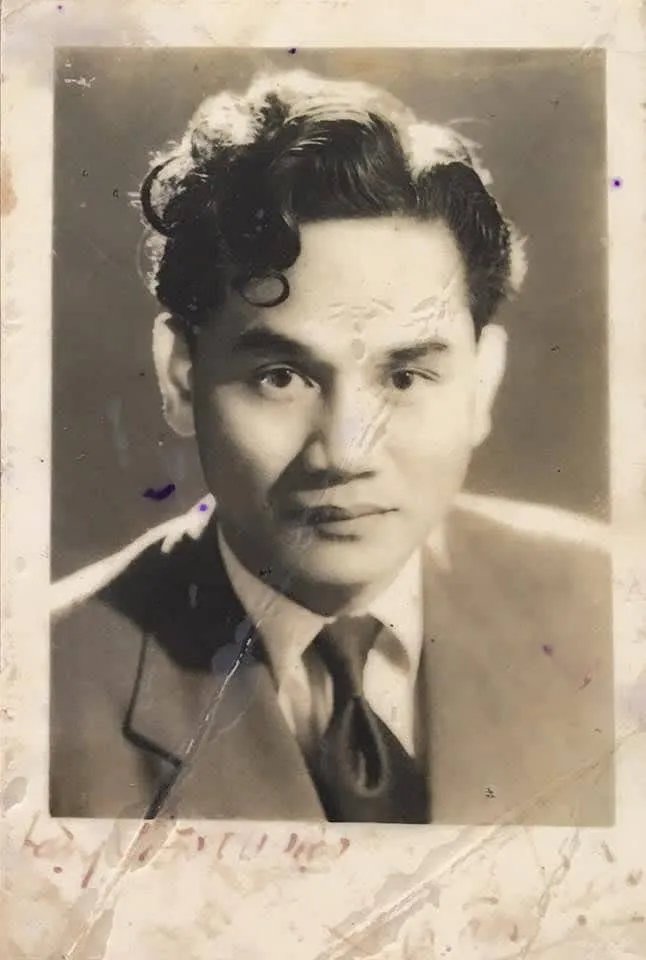I know Pride has technically ended, but queer people still exist and have existed for a long time so today I want to talk about one of Vietnam's most famous queer people:
The king of love poetry, Xuân Diệu (and my lord, wasn't he a handsome lad?).
🧵 https://t.co/yseyTiIN58

Xuân Diệu was born in 1916 in BÌnh Định (where my mum grew up!). He left a legacy of ~450 poems & several other works of essays, short stories & literary criticisms.
His most famous works are love poems, one of which is about homosexual love called "Tình trai" or "Male Love".
His works are (or at least were) included in the official curriculum. I remember my incredible literature teacher mentioned his sexuality & how it affected his works, which significantly impacted me even though I had no idea I was queer then.
This, of course, was not mentioned in any textbooks. Most teachers don't even mention Xuân Diệu's sexuality or completely misrepresent it through a heterosexual lens.
He shared a house with another famous poet, Huy Cận, between 1938 to 1940. It is wildly accepted that they were romantic partners.
He joined the Vietnamese Communist Party in 1945. After that, his works shifted towards the Party's resistance against the French & Americans.
Tô Hoài, another famous writer, mentioned in his memoir "Cát bụi chân ai" (or Dusty Sand on Somebody's Footsteps) that Xuân Diệu was disciplined for fraternisation two nights in a row.
It's worth noting that some of these men who allegedly slept with Xuân Diệu, including Tô Hoài, kept silent while the military commanders reprimanded Xuân Diệu (sound familiar?).
Xuân Diệu denied nothing.
Around 1956, Xuân Diệu married Bạch Diệp, Vietnam's "most important woman director", who was then 27 while Xuân Diệu was 40. The marriage didn't last long.
Xuân Diệu then lived alone in an apartment right above the house of Huy Cận, who was now married to Xuân Diệu's younger sister & has held multiple important positions in the VCP.
Xuân Diệu's life and the nature of his works are still subjected to debates today. He was secretive about his private life. We only know the details which were shared after his death in 1985.
However, his story is a familiar story of queer people living in a society where we have to hide who we are, struggling to fit within what is accepted by the society we live in.
Meanwhile, our works may be celebrated but separated from the utmost important parts of our identity.
By many accounts, Xuân Diệu did not hide his sexuality in his private life and was somewhat publicly out through his works.
But due to the stigmatisation of queer people, his identity countinues to be erased in an official capacity.
Here's an excerpt from the poem Yêu (or Love)
Yêu, là chết ở trong lòng một ít,
Vì mấy khi yêu mà chắc được yêu?
Cho rất nhiều, song nhận chẳng bao nhiêu:
Người ta phụ, hoặc thờ ơ, chẳng biết.
Translation by Huỳnh Sanh Thông:
To love is to die a little in the heart,
for when you love can you be sure you're loved?
You give so much, so little you get back —
the other lets you down or looks away.
More readings:
https://saigoneer.com/vietnam-literature/25618-in-xu%C3%A2n-di%E1%BB%87u-s-tender-poetry,-a-reminder-to-love-honestly-and-courageously
https://www.facebook.com/watch/622300337973675/166736848939513/
https://www.nguoiduatin.vn/vach-tran-noi-kho-tinh-trai-cua-nha-tho-xuan-dieu-a112559.html
Bonus: Tô Hoài's stories about Xuân Diệu's sex life will make anyone blush. Xuân Diệu was so charismatic and loving, so many men were into him.
